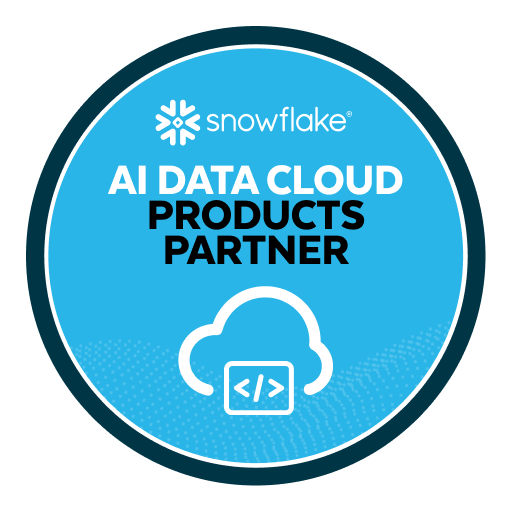
Why are companies in the data and software engineering industries so excited about DaaS? And if you aren’t already excited already, why should you be? Firstly, it’s a more agile way of selling external data than data-as-a-product (DaaP).
As we’ve seen, data-as-a-service leverages recent technology and is an innovative way of selling external data. Data-as-a-Product, on the other hand, is a more traditional model of data exchange. The ‘product’ in question is usually a batch file of tabular data delivered into an S3 bucket. In this model, buyers purchase the data outright, often from a data broker or online marketplace. The data is then owned by the buyer and can be used however they see fit. The data is not hosted or managed by a third-party provider, and buyers must handle all the maintenance and updates themselves. The cost of data-as-a-product is often higher than DaaS, as buyers must pay for all associated costs upfront, as opposed to the subscription model usually attached to DaaS.
The more significant advantage of DaaS is its agility. As Forbes explains, the subscription model offered by DaaS removes the buyer company’s ‘in-house commitment to data’. It can be requested and paused as the buyer needs. DaaS is also agile in that the information can be sliced and diced to suit the buyer’s needs. uniform, standard products are not suitable for niche and specific data use cases. Some projects simply need a custom data solution. This is where DaaS comes into its own. The DaaS vendor is responsible cleansing and tailoring the raw facts according to the buyer’s specific needs - this is the ‘service’ aspect of DaaS. In practice, this service might be manipulating a foot traffic API so that it only covers the geographic regions and POIs the buyer needs. If you were to buy a standardized foot traffic data product, you could find that you’re paying for information on regions irrelevant to you. So even if the flat rate price of a product is lower than DaaS, it could be that the ROI on the data product is lower than a custom DaaS solution.
That being said, data-as-a-product has some advantages over DaaS. When data suppliers organise their offering into listings, buyers know immediately what they’re getting and how much is costs. The price of the data product is fixed and buyer-agnostic, whether you’re buying for a startup or an enterprise. In contrast, DaaS vendors usually offer custom solutions for companies with specific data projects and larger budgets. So data-as-a-product brings a degree of transparency and standardization which DaaS lacks in comparison.
Secondly, it’s one of most significant development in technology commerce since widespread adoption of SaaS. Although both are SOA, DaaS companies are different to SaaS companies in some important ways.
As SafeGraph’s Auren Hoffman puts it, DaaS companies look like ‘the ugly child of a SaaS company (like Salesforce) and a compute service (like AWS)’. This analogy raises an obvious yet important point: SaaS pre-dates DaaS. DaaS is enabled by SaaS more often than the other way round. DaaS’ comparative immaturity as a product and business model has meant that it isn’t afforded the same credibilty as SaaS. As such, its value was underestimated up until the past 5 or so years. There also remains the public stigma surrounding data monetization and privacy concerns which isn’t attached to SaaS. A lot of media coverage of DaaS overlooks that many companies make DaaS part of their ‘data for good’ initiatives.
Another difference is that DaaS serves a broader customer base than most SaaS companies. Successful SaaS companies usually sell into a specific industry, then exapnd across the B2B and B2C space. But as we’ve seen, DaaS spans hundreds of data categories and is applicable for twice as many use cases across industries. Even recently-launched DaaS companies tend to be industry agnostic, catering to clients from AdTech to cybersecurity.
In short, DaaS marries different technological advances: SaaS, API, compute. So as a hybrid, it’s inevitable that DaaS is slightly different to all of them. In its uniqueness, DaaS has revolutionized the way businesses access data and has enabled a new wave of data-driven innovation. The main driver of the DaaS revolution is the increased global demand for external data - no surprises there.
But what about the companies meeting this demand? What’s next for DaaS companies?
A few year ago, McKinsey reported that 50% of companies felt the effects of new entrants providing data and analytics as their central product. These data-focused disruptors undermined traditional business models in tech, media, telecom, and consumer & retail. In 2023, McKinsey’s early findings are now the norm.
We predict that data commerce will become the mainstream in the next 10 years. B2B and B2C companies, young and old companies, across all industries, businesses and other institutions - we’ll see all kinds of organizations entering the external data industry and selling DaaS.
As for existing DaaS companies, they’ll leverage the ever-increasing number of data commerce platforms and data marketplaces to boost data sales. Because of the increasing competition, they’ll have to develop optimum pricing strategies and aggressive scaling strategies. But on the whole, data commerce will become a truly global, extremely valuable market.
150+ data companies use Monda to easily access, create, and share AI-ready data products.
Explore all featuresMonda makes it easy to create, customize, and share AI-ready data products. Find out more about data sharing and company news on our blog.

Sign up to Monda Monthly to get data & AI thought leadership, product updates, and event notifications.
Monda is ISO/IEC 27001:2022 certified for its Information Security Management System (ISMS) and partnering with global leaders in data and AI.



